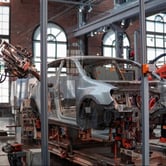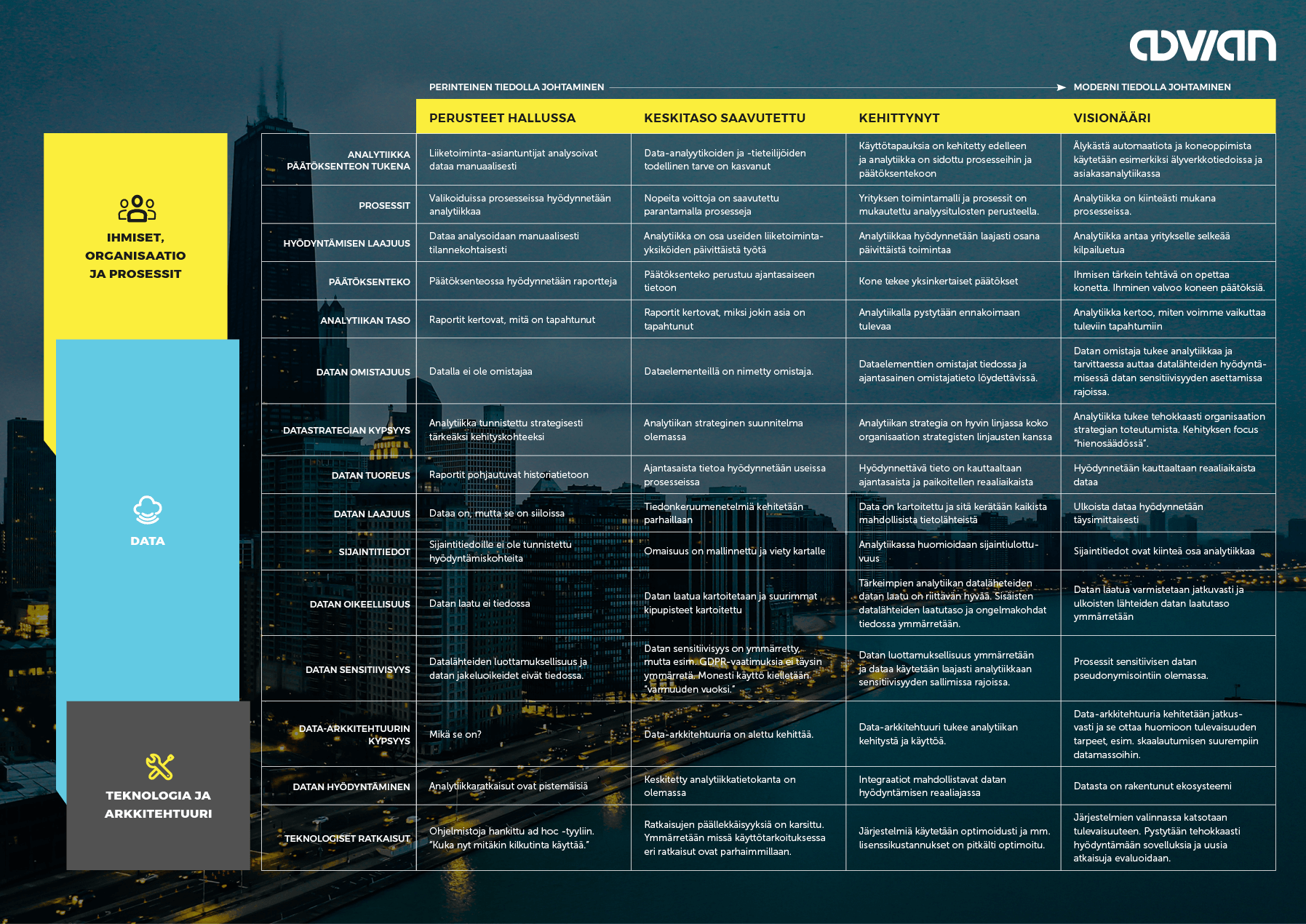Almost every industrial company has some degree of challenges and needs regarding the development of quality assurance and streamlining the production process.
How quality assurance is done varies by company. Roughly, they can be divided into three categories:
- in the first category, the whole quality control process is still manual
- in the second, automating different parts of the quality assurance process has been started
- the third group actively explores and tests new alternatives.
Automated mass processes designed to handle large volumes already use different automated solutions that utilize machine vision. However, in traditional machine vision solutions, the expert has predetermined what is a faulty or an approved product.
By incorporating Artificial Intelligence into the machine vision solution, the data mass can be used more efficiently and the system can be trained to learn the features that define a high-quality product. We can talk about Industrial Edge AI, which in practice means the utilization of new technologies, such as Artificial Intelligence, Machine Learning, Machine Vision, and sensor data for process efficiency and automation.
Artificial intelligence is a great antidote to quality assurance problem areas. It can significantly eliminate or reduce manual steps, improve and speed up error detection, identify weaknesses in the production process, and even predict future failures.
Use cases
The development of new technologies and lower prices have made it possible for solutions using artificial intelligence to be used in lower-volume manufacturing processes. Below I present three examples of how Advian’s Quality Assurance solutions work.
1 Improve quality by analyzing your production data
In the manufacturing and process industries, quality assurance is still often based on, for example, sampling or expert assessment of batch quality. With an Edge AI solution, sample analysis and a visual inspection can be automated. The solution utilizes sensor data analyzed by artificial intelligence and machine learning models.
In addition, Edge AI solutions enable detecting smaller changes quicker, which can at best prevent larger batches from going sour or stopping the entire production line.
2 Detect faults and anomalies automatically
Defective products are not only a cost factor. They can pose a reputational risk to the company or, in the worst case, be detrimental to the end-user. With the help of artificial intelligence, part of the manual inspection work can be removed, or in some cases, completely replaced.
The accuracy of error detection is improved, quality criteria can be guaranteed and standardized, and the entire process becomes faster.
The solution is suitable for inspecting a wide range of surfaces or shapes, and we select the most appropriate technology on a case-by-case basis. There are many different kinds of sensors available - for example, sensors that can analyze vibration or sound. Various cameras include infrared, stereo, and hyperspectral cameras.
3 Recognize slowly evolving changes in the production process
Subtle changes in production may occur over time. With artificial intelligence-based solutions, you can see more effectively how and at what time these deviations have occurred.
With manual quality control, defective products may be detected, but often the root cause remains unknown. In this situation, the already collected production data helps to locate where the process deviation occurred. The life cycle of a product can be affected by many things in the production and supply chain. Analyzing this as a whole can lead to valuable discoveries and also generate value for the end customer.
If the product receives service or warranty requests, cause-and-effect relationships can be identified by analyzing production or component data. This way, things that cause systematic errors in finished products can be improved in the production process. If you develop the solution further, you can even start to predict future errors. What if you knew why the products are defective before the manufacturing process has run to completion?
Would you like to learn more about the different use cases?
Download our popular Smart Factory eBook here. 👇
How to release the power of Artificial intelligence?
However, integrating artificial intelligence into the production environment and process is not easy. Based on discussions with customers, the problem does not lie in not believing in artificial intelligence nor the potential of new technologies.
So why isn't artificial intelligence already being used more? There are two reasons for this - one is the verification of business benefits, and the other is the lack of necessary skills and expertise.
1 The decision to invest in new technology can be hard to justify
The savings and benefits of artificial intelligence can be difficult to quantify on the financial level, especially if the company has not tried this type of solution before or if previous experiments have only managed to reach a piloting stage.
I would approach the topic in the long run and through strategic thinking. Does artificial intelligence and solutions utilizing new technologies have a place in the strategy? It is crucial to set clear goals and schedules. As new technology gains a foothold in strategy, the development will be more holistic.
2 New technologies may not get the role they deserve in process development, because companies simply don't have enough internal expertise
It is often the case that you can not find all the needed expertise in-house, so you have to buy it externally or start developing it internally. Finding a competent solution partner who understands the laws of both technology and business can be challenging.
Because each production process, plant, or chain is unique in its way, one-size-fits-all solutions do not provide maximum added value. This is the advantage of Edge AI solutions, as they adapt to the customer's operating environment. With our Smart Factory solutions, you can solve challenges on a case-by-case basis. Machine learning models are taught with the customer's own data. Our task is to solve business challenges from start to finish so that the results are visible below the line.
Do you have an area in mind that you would like to
improve in your quality assurance?
Let us tackle your business challenge! Below you can book
a discussion with our experts. 👇

Learn more about our Smart Factory solutions
Smart Factory enables intelligent automation of your factory.

Topics: Ai, Edge Analytics, Advanced Analytics, Machine Learning, Edge AI, Manufacturing, Smart Factory, Hyperspectral imaging














